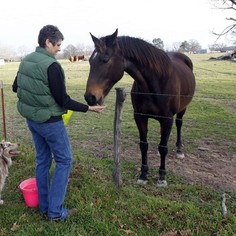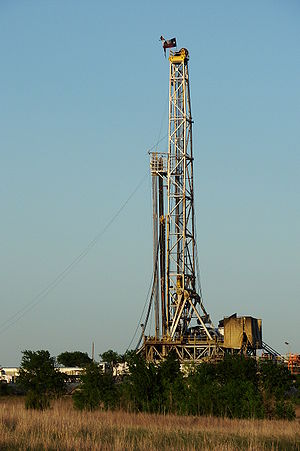Neighbors for Neighbors (NFN), an organization of residents near Luminant Mining’s Three Oaks Mine, filed late Monday for a contested case hearing on an EFH subsidiary’s request to renew the mining operation in Lee and Bastrop counties.
In its filing, NFN asks the Texas Railroad Commission, the agency that administers mining law in Texas, to require Luminant Mining to post cash or an outside bond to cover the estimated $60 million cost of cleaning up the strip mine. The group points out since EFH, the parent company of Luminant Mining, is expected to file for bankruptcy by the end of this year, there may not be funds to cover the cost of cleanup. Click here to see a copy of the filing.
“Does a company have to go bankrupt and walk away from its mines in order for regulators to step in?” asked NFN president Travis Brown. “It would be the height of irresponsibility for Texas to allow a company going bankrupt to say, ‘Trust us, we’re good for it.’ We want Luminant Mining to post real bonds to assure that the mining restoration gets done.”
Russel Bostic, a local rancher and NFN member, said “I live next to the mine, and the company has condemned and is planning to use my land. My family wants our land to be restored to its original condition so we can return.”
Lignite coal mined at Three Oaks is used to supply Luminant’s two coal-fired power plants near Rockdale.
Under federal and state law, mining companies are required to restore mined areas to their original condition. Those companies must also set aside money so resources will be available for the restoration, even if the company abandons the mine. The law was created because many U.S. mines were abandoned when companies went bankrupt, leading to contamination of surface water and groundwater.
In Texas, Luminant Mining is responsible for the operation and cleanup of eleven active strip mines. If EFH goes bankrupt and sufficient cash has not been set aside for cleanup, taxpayers could end up with the estimated $1.01 billion cost of cleaning up all the mines.
Instead of requiring that $1.01 billion be set aside in cash or a real bond, the Railroad Commission allowed Luminant to “self-bond,” which means the company is relying on a “guarantee” that their own assets will cover the bonds without having real cash bonds set aside that the state can readily access. In recent years, EFH has shifted to third party guarantee of the bonds, but the third party is another subsidiary of EFH, so still them.
In its current request for a mining permit for Three Oaks, Luminant Mining is again asking to post a self-bond for cleanup.
Brown said, “The company recently said in a community meeting at the mine that they intend to pledge assets for the cleanup bond. They said they need to operate the mines and coal plants to generate revenues to pay the new debt. But nowhere in their most recent 8K [financial statement to SEC] do they make that commitment.”
Brown added, “This is especially disturbing since the company also says – in the same 8K – that they expect the price of gas to go up and coal to stay low. That’s the same poor business plan that has led to this bankruptcy.”
Michele Gangnes, an NFN member and a bond attorney, said “The law is clear, and Texas regulators should take immediate action to demand a cash bond so taxpayers and the environment are protected.”
Gangnes added, “In many states, Luminant Mining would be required to put up a cash bond before allowing the Tree oaks mine to expand. But EFH has been playing a shell-game, and state regulators have allowed it. We are asking the Railroad Commission to guarantee that EFH has to set cash aside or post a third-party bond specifically for cleanup of the mines in this bankruptcy deal.”








